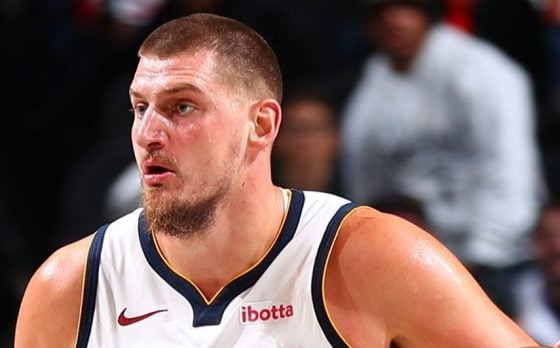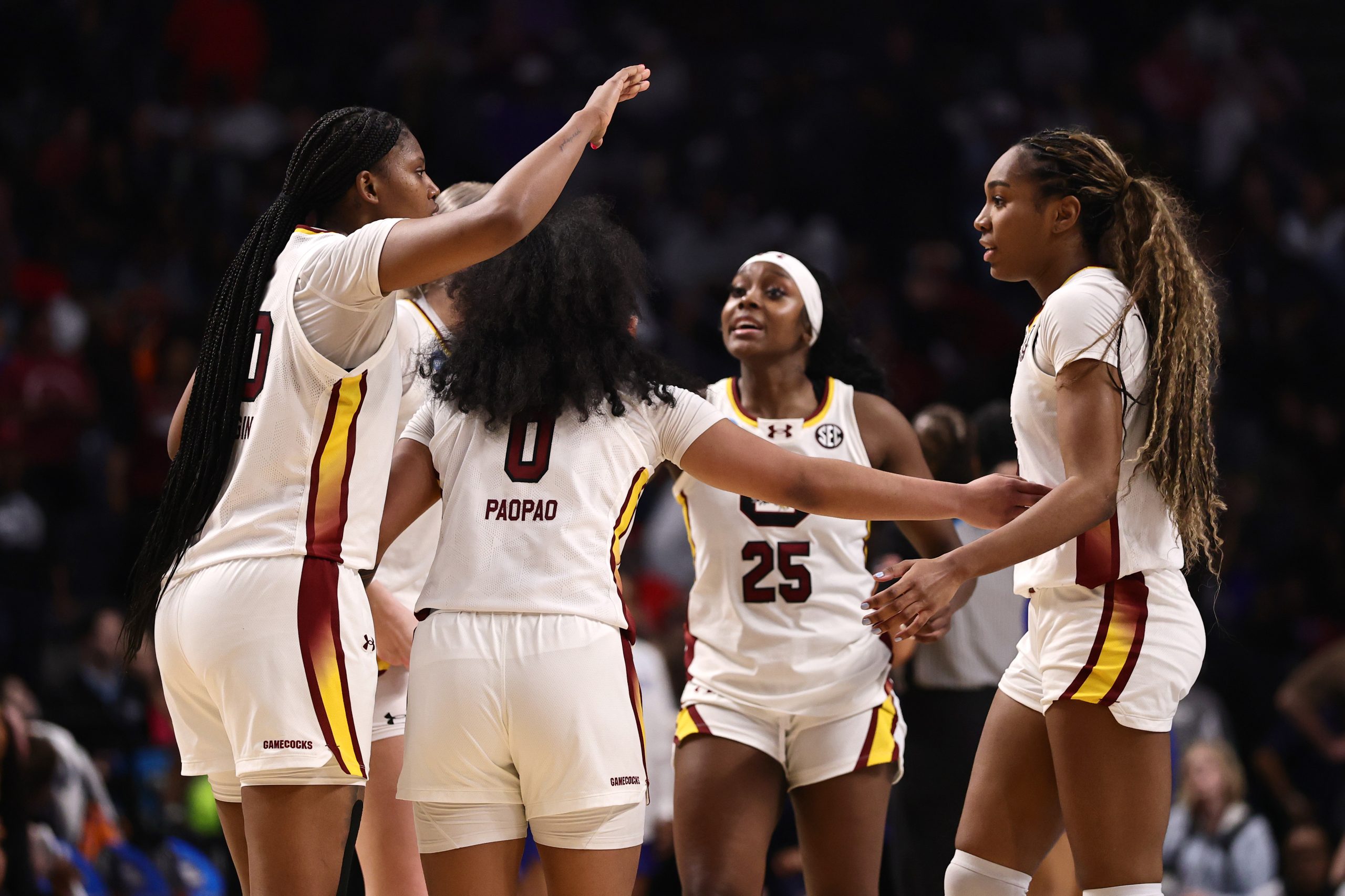Before we get started here, allow me to present to you a stat. Whether by scoring, assisting or initiating possessions as the lead ball handler, Jayson Tatum has created 45% of the Boston Celtics’ total points through three games of The Finals, per Synergy Sports.
Forty-five percent! Nearly half of the Celtics’ 324 points against the Golden State Warriors thus far can be traced back to Tatum. Have I mentioned it’s the 2022 NBA Finals? If that’s not a compelling jumping-off point for an article, I don’t know what is.
Truth be told, you could be forgiven if you felt a little underwhelmed by what you’ve seen from Tatum through three games against the Warriors. From a scoring perspective, it’s been a difficult start to the series. He opened the proceedings with a 3-of-17 clunker in Game 1, and followed it up with what could be the worst postseason game anyone’s ever played while making six threes in Game 2. His best scoring performance has likely been his 26-point outing in Game 3, but even that came on a gritty-but-inefficient 9-of-23 from the field. For the series, he’s shooting just 30% from the field.
But as we’ve preached here on CelticsBlog many times this season, to focus on Tatum’s scoring at the exclusion of the rest of his game is to miss the forest for the trees. Apologies to Jaylen Brown, who has been absolutely brilliant, but Tatum has still been the best player on the floor for the Celtics in these Finals.
Winslow Townson-USA TODAY Sports
The factors behind Tatum’s scoring issues have been twofold, putting it simplistically. First, as teams have done all season long, the Warriors have heaped huge amounts of defensive attention on Tatum. They’re able to stick him with quality perimeter defenders like Andrew Wiggins and Gary Payton II at nearly all times, while orienting practically their entire defensive scheme around taking away his ability to create shots. Secondly, he’s visibly still struggling with the shoulder injury he suffered against the Miami Heat, which has appeared to affect his ability to finish at the rim at times throughout The Finals thus far.
He’s responded to these obstacles by becoming more or less the puppeteer of the entire Boston offense. It’s the final evolution of his remarkable growth as a passer over the past few years. He’s become a full-fledged offensive hub this postseason — the rising tide that lifts all ships. His career-best 21.1% assist rate in the regular season has climbed all the way to 26.9% in the playoffs, and he leads all players in total assists in the postseason (though aided by the Celtics’ league-high 21 games played, of course).
That Game 1 where he couldn’t make a shot to save his life? He also set the NBA record for assists in an NBA Finals debut with 13. He recognized that his shot simply wasn’t there, put his head down and focused on facilitating the Celtics’ offense. He may as well have been listed as a point guard in this game.
Tatum was his typical understated self about his performance as a playmaker after that Game 1 win. “It’s as simple as you draw two, find someone open,” he said. “That’s all I was trying to do.”
When the wheels came off in Game 2, it’s no coincidence that Boston’s ball movement functionally stopped. The box score would tell you this was Tatum’s best scoring performance of the series thus far, with 28 points and six made threes on the evening. But most of Tatum’s production — five of the triples and all three of his assists — came before the halftime break. In the second half, he may as well have not existed on the court: seven points, three shot attempts, one rebound. It’s no coincidence that the Celtics’ offense collapsed alongside him, scoring just 14 points on four assists in that disastrous third quarter before an early emptying of the bench.
This wasn’t the kind of offense that was going to help the Celtics pick themselves back up after the Warriors connected on their third quarter haymakers. Tatum is a skilled isolation scorer, but a late-clock step-back against Wiggins (who has had a nice postseason defensively) is a shot the Warriors will happily live with.
“When we play drive-and-kick, that’s our game,” said Al Horford, who scored just two points and attempted zero three-pointers in the loss. “We need to play that way.”
This is how Ime Udoka’s egalitarian offense functions, and Tatum’s growth is simultaneously a product of the system as well as a key factor in its success. Udoka and the Celtics have trusted Tatum with far and away the most decision-making responsibility of his NBA career, and for his part, he’s paid them back with interest.
“My key is how we are moving the ball,” Udoka said during media availability on Thursday. “When we are playing the right way, you can see it.”
With Tatum, where you see it is in the results. They have a blistering 18-2 record when he dishes at least seven assists in a game, and they’re currently riding a 15-game winning streak in such games, with their last loss coming all the way back at the end of January. Seven of those games have come in the playoffs alone, and all but two of them have been double-digit Boston wins.
All of this came together in the fourth quarter of Game 3, where Tatum made just about every play down the stretch to put the Warriors away for good. The damage: eight points and two enormous assists to Marcus Smart (both threes) in the span of seven minutes to put Golden State down 14 points with 5:07 remaining in regulation. Smart’s second triple in that stretch might be the perfect distillation of Tatum’s effect on the game as a playmaker — he drives left and both Steph Curry and Draymond Green help on him, leaving Smart open in the corner to receive a spectacular kick-out pass.
“I’m just trying to make the right play every time,” said Tatum after Game 3. “I understand it’s not going to be perfect, but I’m just trying to do whatever it takes to win.”
More likely than not, Jayson Tatum’s scoring will trend back up closer to its typical level as this series goes on. The Warriors have a lot of great defensive weapons that will make his life particularly difficult, yes, but as he’s shown repeatedly throughout this postseason, he’s simply too talented of a scorer to be held down for long. He’s not likely to shoot 30% across the rest of this series.
Whether or not that happens, though, it’s become incredibly clear that Tatum’s maturation as a playmaker is complete. At his best, he’s in complete command of the offense regardless of whether his shot is falling. If he continues to pull the strings the way he did in Games 1 and 3, the Celtics will be in great shape as this series nears its conclusion.






